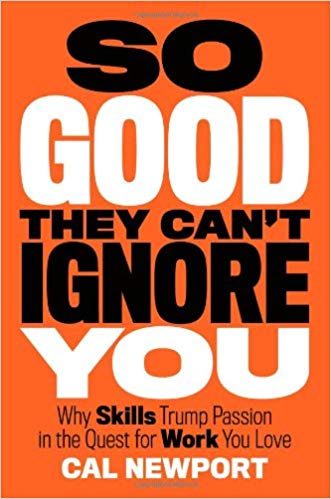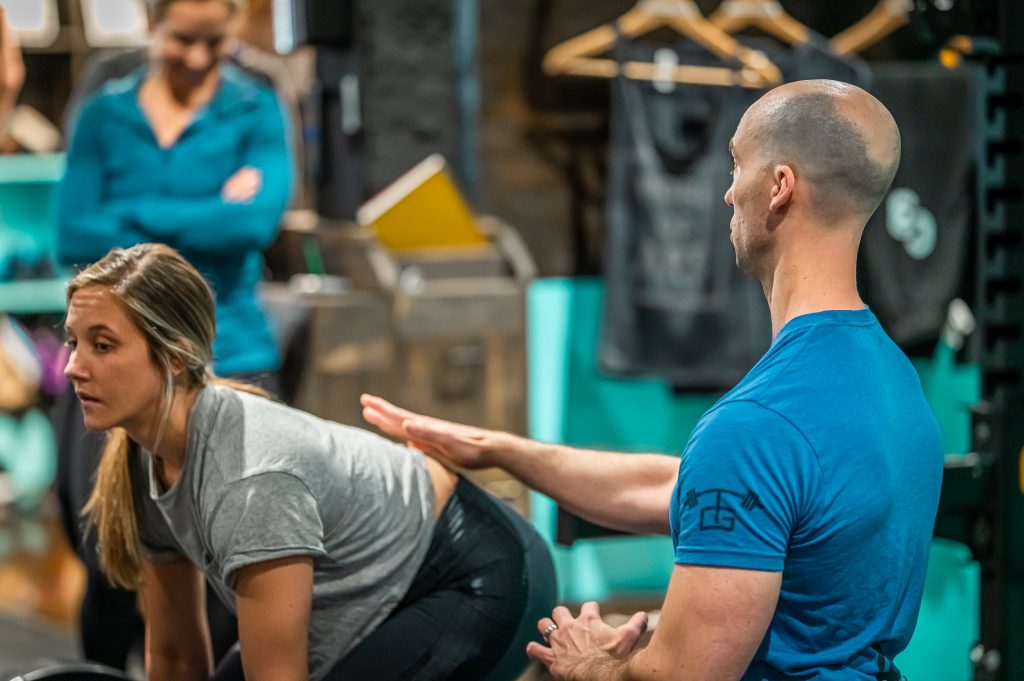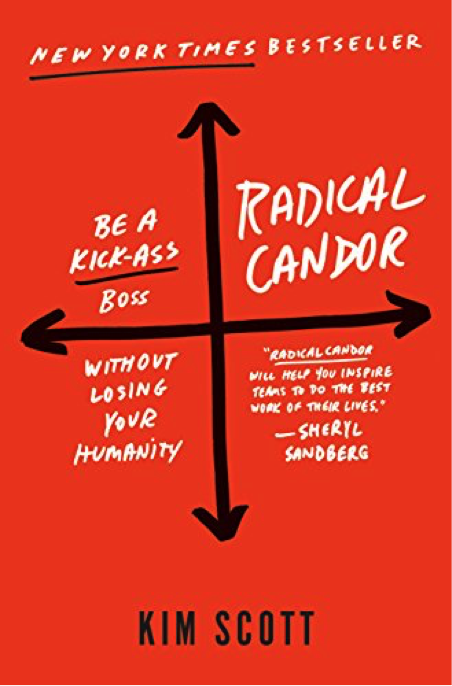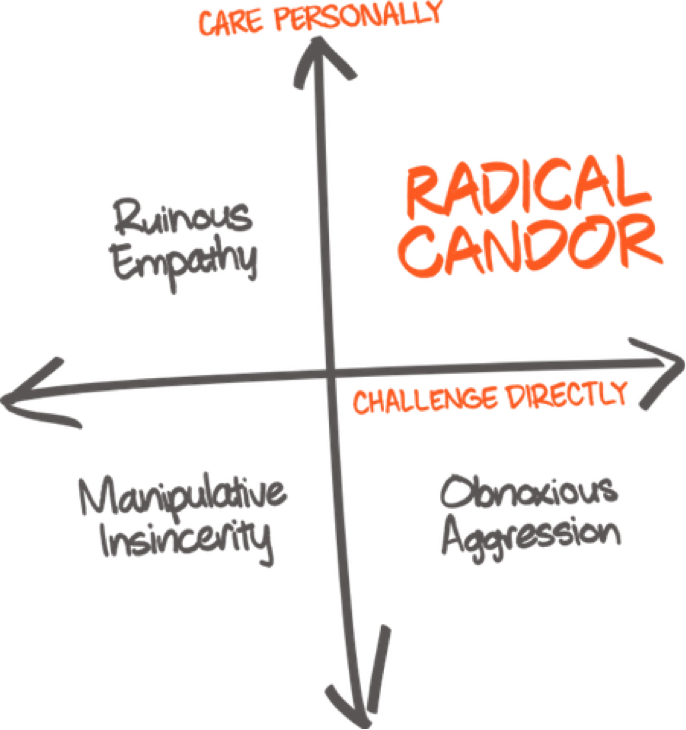Note From TG: I am passionate about a lot of things:
- 90’s hip-hop
- My wife’s butt
- Tickle fights…to name a few.
I have yet, however, to follow my “passion” in any of those things and attempt to make a career out of them.
There’s a facade in today’s society where we put on our rose colored glasses and think that, so long as we follow our “passion” and pursue something we love doing, that that will be the panacea of a happy life and fulfilling career.
I am not going to rain on everyone’s parade…but it’s not quite that simple.
Today’s guest post by Exercise.com founder, Joel Ohman, hits the nail on the head.
I wish I could make out with it I like it so much.1

Should You “Follow Your Passion” into Starting a Fitness Business?
It seems that many times, maybe even most of the time, the calculus for entering the fitness industry involves a variant of this internal discussion:
“Well, I like working out, and I like wearing shorts to work, and, at least I’ll never have an excuse to not work out, right? A career in the fitness industry seems great for me!”
And then, quickly thereafter,
“You know, I can’t stand having my boss tell me what to do, and I hate having to share my hourly rate with the gym, so I’ll just go out on my own. I’ll start my own fitness business!”
Tony has long argued that new entrants to the fitness industry should put in their time, working for at least a year, as a personal trainer in a commercial gym setting, but is passion enough to propel you into starting your own fitness business?
At Exercise.com, we encounter trainers, gym owners, and fitness professionals of all stripes. Some of the trainers we work with train professional athletes, Olympians—including a trainer who is himself an Olympian—those with large social media followings, those who are just starting out, and all across the map, but the common denominator to success is that one must be willing to put in the work.
Passion, energy, and excitement are great things, but let’s be honest, there comes a time in any career or business venture where you just have to do the hard things necessary for success, passion plays little to no part in it.
Author Cal Newport in his (excellent) book “So Good They Can’t Ignore You: Why Skills Trump Passion in the Quest for Work You Love” labels this common misconception the Passion Trap.

The Passion Trap
Newport describes the Passion Trap:
“The more emphasis you place on finding work you love, the more unhappy you become when you don’t love every minute of the work you have.”
This seems counterintuitive and certainly runs against the modern advice given to job-seekers to “follow their passion” in a career or business they love. Yet, if this is the case, why do only 20% of workers claim to feel very passionate about their jobs?
Rather, Newport argues that we are focusing on exactly the wrong thing.
Similarly to the paradoxical way that focusing on becoming more happy tends not to make us happier, but just more conscious that we are not, in fact, happy, but if we instead focus on something outside of ourselves—helping others or focusing on an important external mission, for example—then happiness is more likely to “just find us” so too, focusing on something besides what we are passionate about in our work will tend to have the same effect.
So what should we concentrate on?
What are some of the things we should focus on to determine whether starting a fitness business or launching a career in the fitness industry is a good fit for us?
Newport outlines a number of things that are important, from autonomy, authenticity, and mission, but the single biggest factor is skill.
Skills Trump Passion
Developing skills by working hard over an extended period of time, by deliberately practicing and improving in a particular area of expertise, trumps any short-term nebulous claims of passion when it comes to finding long-lasting job and career satisfaction.
In other words, when you work hard at something for a long time and become a true expert, viewing your work from the vantage point of a craftsman and true master, then satisfaction naturally follows.
But if you spend all your time chasing after the ephemeral passion bubbles floating by you on the wind then your satisfaction will be temporary and disappointing.
Kevin Mullins echoes Tony’s earlier advice about working in a commercial gym setting with his article, “You Are Never Too Good to Work in a Commercial Gym Setting” because true masters, those with a craftsman’s approach to their work, realize that one must trust the law of the process, and you can’t skip steps on the journey to mastery. Mastery, expertise, a craftsman’s mindset, all of those elements have a much great contribution to lifelong satisfaction in the fitness industry.

Does this mean that you should never start out on your own and build your own fitness business?
Absolutely not!
As a 5x serial entrepreneur I couldn’t imagine doing anything different, so if you are wired the same way—and being wired a particular way is not better or worse than anyone else—then by all means, strike out on your own and start that fitness business!
But don’t skip steps.
Put in the hard work of getting certified, picking up some personal training experience, get some business savvy, learn about marketing, and learn from case studies of other successful personal trainers and fitness business owners.
To be clear, a career in the fitness industry can be a great thing.
But to really succeed and to experience long-lasting satisfaction you must commit to the lifelong deliberate practice of building the skills and craftsmanship necessary to become a true expert.
And, yes, you can wear shorts to work.
SPECIAL DISCOUNT: If you want custom-branded iOS and Android apps for your fitness business, then check out Exercise.com’s fitness business management software to scale your business in-person and online using assessments, clients/class scheduling, gym check-ins, billing, workout software, and more then mention this article to get an extra month free.
About the Author
 Joel Ohman is a serial entrepreneur, author, and angel investor. He is the founder and CEO of Exercise.com and a number of tech startups. He lives in Tampa, FL with his wife Angela and their three kids.
Joel Ohman is a serial entrepreneur, author, and angel investor. He is the founder and CEO of Exercise.com and a number of tech startups. He lives in Tampa, FL with his wife Angela and their three kids.
His writing companion is Caesar, a slightly overweight Bull Mastiff who loves to eat the tops off of strawberries. He lifts weights six days a week and does Krav Maga twice a week to try to ignore the fact he’s still just a washed up ex-college basketball player.
You can connect with Joel at JoelOhman.com.





 Joel Ohman is a serial entrepreneur, author, and angel investor.
Joel Ohman is a serial entrepreneur, author, and angel investor.

